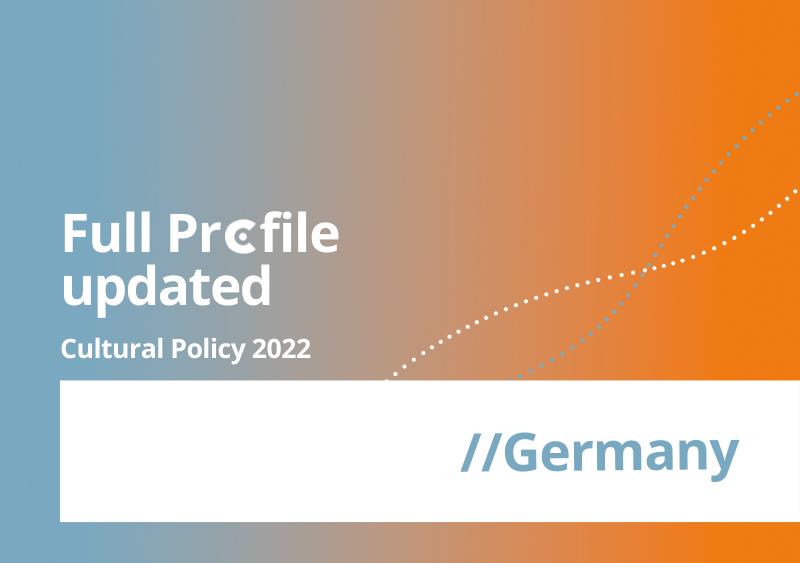An updated cultural policy profile for Germany is now available, thanks to the enormous efforts of our Compendium expert Ulrike Blumenreich.
Below you can find some highlights of recent developments of cultural policy in Germany:
- With its coalition agreement 2021, the new Federal Government has strengthened the importance and tasks of foreign cultural & educational policy by agreeing upon new priorities for the federal cultural policy (e.g. anchoring culture as a state objective in the Basic Law; strengthening the social situation of artists, establishment of a “Green Culture” contact point for ecological transformation; establishing a “Plenum for Culture” to improve the cooperation of local authorities and with producers, associations, and civil society, strengthening the cultural economy; repatriating Nazi-looted art)
- The federal government supported the cultural and creative sector during the pandemic with two large funding programs (NEUSTART KULTUR with 3 billion euros, the special fund with 2.5 billion euros), as well as continuing programs like “Kultur macht stark” until 2027.
- The COVID-19 pandemic highlighted the need for the digital transformation of the cultural & educational sector. In August 2021, the Federal Government Commissioner presented a perspective paper entitled “Cultures in Digital Transformation“, which outlines both the current status and the need for future action.
- In 2020, an action network “Sustainability in Culture and Media” was founded in response to the first sustainability report commissioned by the Federal Government Commissioner for Culture and the Media.
- In January 2021, the Conference of Ministers of Culture confirmed the decision: Chemnitz will be the European Capital of Culture 2025 under the motto “C the Unseen”.
Here you can find the cultural policy profile of Germany as a PDF file (in English)
Here you can find the cultural policy profile of Germany as a PDF file (in German)


Comments are closed.